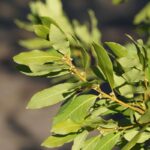Ginkgo baba’s leaves are unusually shaped, as expect from such a large tree. Because of their memory-enhancing properties, the leaves are often use in dietary supplements.
One of the oldest living things in the world is a 200-million-year-old Ginkgo tree.
There are many countries that make up the Asia-Pacific region, including Korea, Japan, China and Japan.
Another perk is the increased oxygen and nutrients for the brain.
Ginkgo trees can be found all over the world because of their adaptability.
Evidence suggests that they can cause anxiety, memory loss, vision problems, and memory issues.
Ginkgo’s popularity in medicine has been rising recently, it’s not surprising.
Ginkgo is a natural remedy that can improve sexual health and erectile dysfunction.
Nitric oxide reduces blood pressure because it relaxes the smooth muscle in your arteries. Ginkgo biloba tablets might be a good option.
Ginkgo could improve blood flow to the penile region, which could be a benefit for men suffering from erectile dysfunction.
Recent research suggests that ginkgo Balboa extract might reduce the libido-depressing effect of antidepressants (SSRIs). Ginkgo biloba, like sugar pills, has physiological effects on your body. Avoid combining ginkgo with SSRIs.
If you or your partner have communication difficulties, cenforce 100 mg tablet and nizagara 100mg may be helpful.
One study examined the effects of ginkgo on sexual desire and satisfaction among women who had undergone sexual psychotherapy.
The results were better than those with the drug alone or with ginkgo taken in combination.
Although there has been a lot of interest in the potential efficacy of ginkgo as an erectile dysfunction treatment, no studies have been done.
Ginkgo trees are known for their high antioxidant content and have many health benefits.
Ginkgo’s high flavonoid and terrene concentrations can help to provide strong antioxidant properties.
Antioxidants can use to counteract or mitigate the effects of free radicals.
Free radicals produce by all metabolic processes in the body, including digestion and waste removal.
They may cause damage to healthy cells and accelerate the aging process.
Ginkgo trees have been shown to be antioxidants in recent years. The lack of information on the mechanism of action and therapeutic potential of ginkgo trees in treating various diseases has raised concerns.
Numerous studies have shown that the ginkgo balboa plant can help reduce swelling and pain.
Inflammation occurs when harmful cells, organisms, and organs are replaced by harmless ones.
The immune system sends chemicals and inflammatory cells to the area when it detects an intruder or injury to a tissue.
Chronic diseases can often present with inflammation, even if there is no injury or infection. Research has shown that chronic inflammation can be linked to genetic and cellular issues.
In vitro and in vivo studies on animal and human cells have shown that ginkgo extract reduces inflammation.
Ginkgo extract’s anti-inflammatory properties may prove to be beneficial in the treatment of strokes related to cardiovascular disease. Both Irritable Bowel Syndrome (IBS), as well as Rheumatoid Arthritis(RA), are indicators.
Despite these promising results, it is important to continue human research on ginkgo in order to treat these major disorders.
A number of clinical trials in humans have shown that Ginkgo biloba supplementation can improve cardiovascular function and quality of life.
The liver and kidneys are two of four major organs that play a role in cell metabolism and detoxification. The brain and lungs are the other two. Traditional TCM uses ginkgo seeds to increase access to oxygen and nutrients for each organ (kidneys liver, brain, and lungs).
It is believed that the primary health benefit of the plant’s improved blood flow is its increased blood flow.
Ginkgo in higher dosages was beneficial for cardiac patients.
This is because the bloodstream level of nitric dioxide, a vasodilator is 13% higher than normal (NO).
A second study using aged participants and ginkgo extract produced similar results
Numerous studies have shown that ginkgo has link to reduced stroke risk, improved cognitive function, and better memory.
Its anti-inflammatory properties may be due to its long history of traditional medicinal use.
Information about the optimal ginkgo dosage is not available to maximize brain and heart health.
Ginkgo Balba should listene to you when he tells you to slow down.
Studies have shown that ginkgo can help anxious patients.
Live animal testing has shown that ginkgo’s high antioxidant content is responsible for its excellent anti-anxiety properties.
Initial research suggests that ginkgo may reduce anxiety.
Researchers investigated whether ginkgo balboa could relieve headaches and migraine pain.
TCM uses ginkgo as an analgesic to relieve migraine headaches and headaches (TCM).
The confusing results of studying ginkgo have led to some encouraging results. You must identify the root cause of your headache if you want to eliminate it permanently.
A lack of blood flow can cause severe headaches. Some people find relief by taking ginkgo.
Chronic headaches can cause by cardiovascular disease. These conditions would make it impossible for the ginkgo to survive.
Their results are not consistent with reality because they didn’t do enough research. Ginkgo can use to both treat and prevent migraines. This is not a permanent solution.
Ginkgo Balboa extract has been shown to have health benefits. It is best to consult your doctor before you add ginkgo into your daily routine.
These are possible catastrophic outcomes. Common adverse effects include nausea, diarrhea and vomiting, sickness, vomiting, nausea and vomiting, headaches, stomach discomfort and nausea.
Ginkgo is generally well tolerated but some users have experience side effects.
Avoid ginkgo if you have had any adverse reactions to alkylphenols, or are taking medications that contain them.










